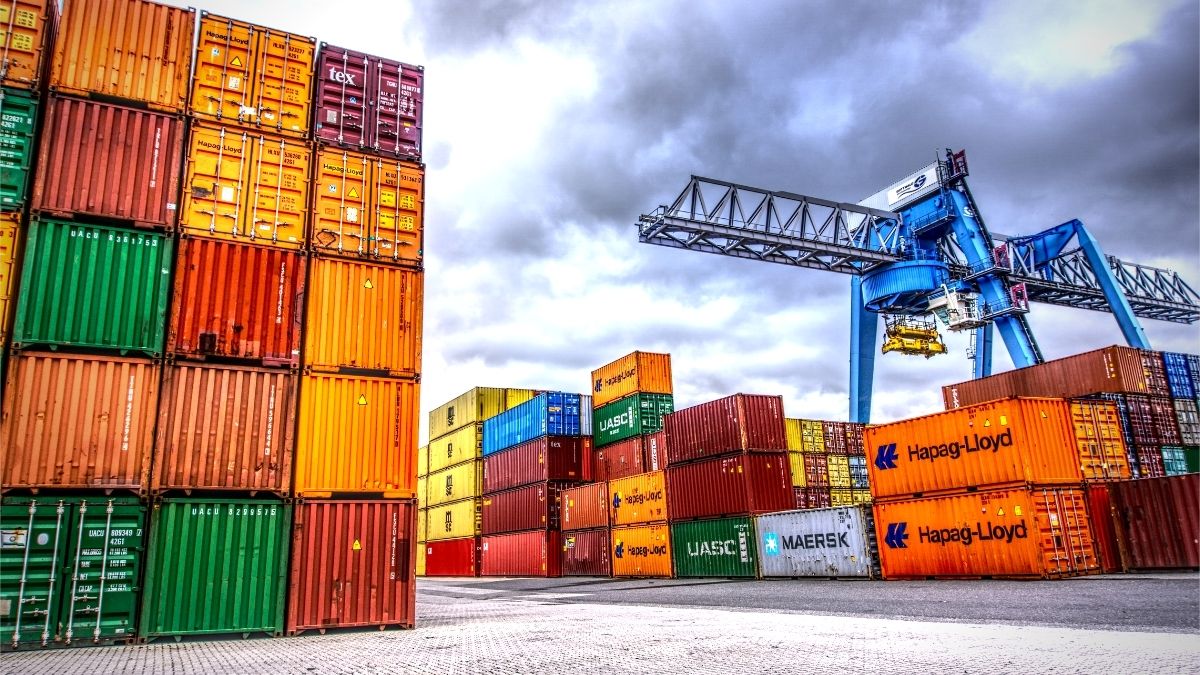News
Freight Costs: 146% Hike Hits Mauritian Economy Hard

A significant increase in container freight costs from Asia since May 15 has sparked concerns about its potential impact on the Mauritian economy.
Observers are warning of rising prices for imported products and inflationary pressures, which could affect consumer purchasing power and the competitiveness of businesses.
The surge in container freight costs, ranging from 100% to 146%, is having a ripple effect on the economy.
This increase in freight tariffs is expected to have a significant impact on consumers and the economy as a whole.
Economists are sounding the alarm about a potential surge in prices for imported products in the future.
“I think we should expect prices to go up because importers will want to maintain their profit margins,” said Imrith Ramtohul, an economist.
“We should also consider the impact of the appreciation of the dollar. The intention will generally be to pass on the higher costs to consumers.”
Claude Canabady, secretary of the Consumers’ Eye Association, agrees. “This increase in freight costs will likely have a negative impact on the consumer’s budget, as it is the consumer who ultimately pays the consequences,” he said.
“The increase in freight will pass through a chain, that is, transit – importer – retailer, and the last link is the consumer. It’s always the consumer who pays the price.”
The consequences for the economy are also worrying. Imrith Ramtohul notes that higher freight costs imply higher transportation costs, which could lead to higher prices for consumers.
“This could contribute to inflationary pressures, reducing consumer purchasing power,” he said.
Additionally, there may be increased demand for cheaper substitutes, which could also affect businesses.
“They may experience a reduction in their profit margins with higher costs for inputs,” he said.
The surge in container freight costs is likely to have a significant impact on the Mauritian economy, particularly on consumers and businesses.
As the Rupee is continuing to depreciate and the dollar appreciates, it is expected that prices will rise. The cost of imports will increase, and consumers will ultimately bear the burden.
The hike in freight costs is a wake-up call for businesses and policymakers to take action to mitigate its effects.
With inflationary pressures on the rise, it is essential to ensure that measures are put in place to protect consumers’ purchasing power and maintain the competitiveness of businesses.
Economists Warn of Rising Costs and Inflationary Pressures, Offer Solutions to Mitigate Impact
As the cost of freight surges, businesses that import raw materials, such as textile companies, may be forced to bear significantly higher costs compared to their international competitors. “This will affect their competitiveness on the international market,” said Imrith Ramtohul, an economist.
“They may lose market share and therefore experience a decline in exports.”
Claude Canabady, secretary of the Consumers’ Eye Association, agrees that the implications for the economy will depend on the government’s economic strategy.
“The budget will tell us more. The consequences are clear unless the Minister of Finance finds a way to fill the government’s coffers,” he said.
The cost of imports is already astronomical, and according to Canabady, it will only increase further, leading to a rise in public debt.
Mitigating the Impact of Freight Costs
To minimize the negative impact of rising freight costs, economists propose the following solutions:
- Producing Locally: Imrith Ramtohul explained that producing locally when possible can help the country save on higher freight costs. “This will help reduce the country’s dependence on imported products that are becoming increasingly expensive,” he said. Claude Canabady agrees that producing locally can reduce dependence on imported products.
- Strengthening Collaboration with Freight Providers: According to economists, Mauritius should negotiate more with freight providers, as this could lead to lower freight costs. “A regional collaboration, particularly in the Indian Ocean, could help,” they said.
- Negotiating Trade Agreements: Imrith Ramtohul suggested that Mauritius can also negotiate trade agreements to reduce obstacles, tariffs, and non-tariff barriers. “Such a measure could, to some extent, mitigate the negative impact of higher freight costs,” he said.
- Introducing Additional Subsidies for Basic Products: Claude Canabady explained that consumers will have no choice but to tighten their belts. “Reviewing expenses may be a solution,” he said. However, he added that the government must find new ways to alleviate the consumer’s burden. “One way to do this is by introducing additional subsidies for basic products,” he proposed.
- Support for Those in Need: The secretary of the Consumers’ Eye Association believes that the government can provide financial support to those at the bottom of the social ladder, enabling them to meet their needs. “However, this must be done through a well-defined targeting mechanism to ensure that aid is given to those who truly deserve it,” he emphasized.
The government’s response will be crucial in mitigating the impact of rising freight costs and ensuring that the country’s economy remains competitive.
Source: Defi Media











